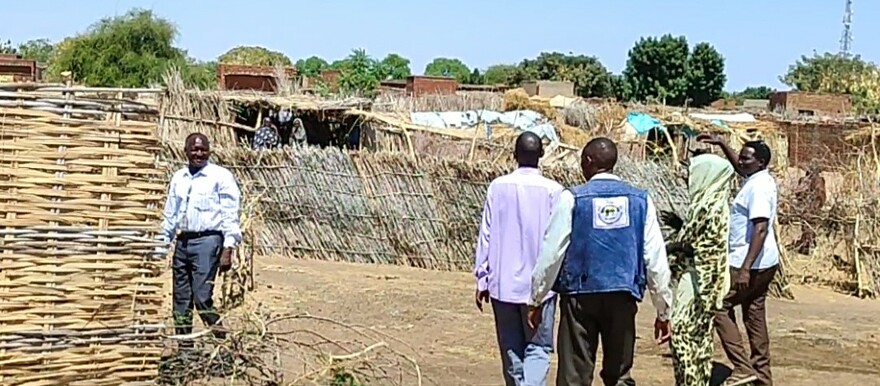The health department in Belil locality in South Darfur State, along with various organizations, is actively providing environmental sanitation services and training health committees for displaced individuals who have fled the city of Nyala.
In collaboration with the Children’s Development Foundation (CDF), the Department of Health Affairs in the locality of Belil, has initiated efforts to deliver environmental sanitation services. They have also undertaken the training of health committees to address water-related diseases. Additionally, with support from UNICEF, they have facilitated the construction of municipal emergency latrines.
Speaking to Radio Tamazuj Friday, Adam Sabeel Bahr, Deputy Director of Health Affairs in Belil locality, emphasized their commitment to sanitation in the area. They have established 60 municipal emergency health facilities in schools and open spaces where displaced people from Nyala are currently situated.
Sabeel highlighted that 35 male and female students have been trained in water chlorination, sanitation practices, environmental hygiene, and the prevention of water-related diseases.
“The trained health committees have played a crucial role in enhancing community health awareness through home counselling. They have also been instrumental in swiftly identifying health issues within the displaced population through the reports submitted by these trained committees,” stated Sabeel.
In a related context, Mohammed Abu Bakr Mohammed, the water official at the Children’s Development Foundation (CDF), emphasized the necessity of establishing 200 municipal emergency health facilities in areas where displaced individuals are located.
Currently, approximately 60 health facilities have been successfully implemented in the Belil locality, and health committees have undergone training with financial support from UNICEF. Mohammed noted, “There remains a substantial gap in addressing the health needs of displaced people, requiring further support from donors to strengthen our efforts.”
Yasmine Ahmed Mohammed, a 24-year-old member of the Health Committee, highlighted the positive impact of health measures on reducing watery diarrhea infections among displaced individuals at Al Umm School in Belil locality.
Iman Abdel Rahman Ibrahim, a displaced person at the mother’s school, expressed gratitude towards the organizations for constructing latrines. These facilities have effectively addressed the issue of open defecation, contributing to an improvement in the overall health of the surrounding environment.
It is important to note that, towards the end of last year, hundreds of families were displaced from the city of Nyala to Belil locality due to concerns about potential conflicts between the army and the Rapid Support Forces.
The displaced families sought refuge in schools and open spaces. Furthermore, Belil locality is home to the largest camp for displaced individuals since the 2003 Darfur war, known as Kalma Camp, which also houses a camp for refugees from South Sudan.




